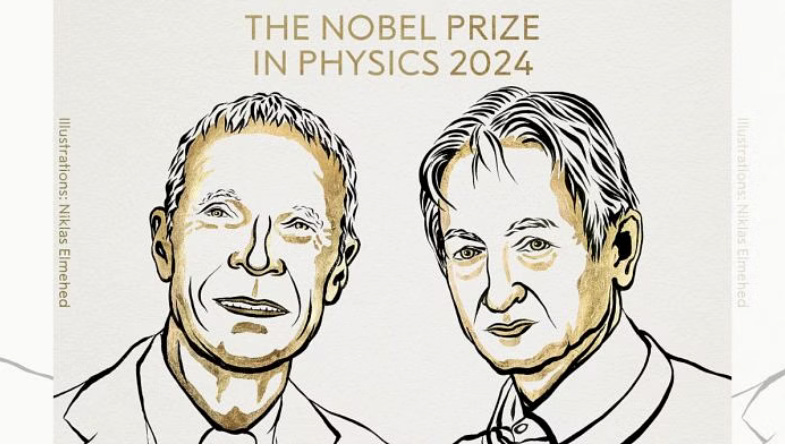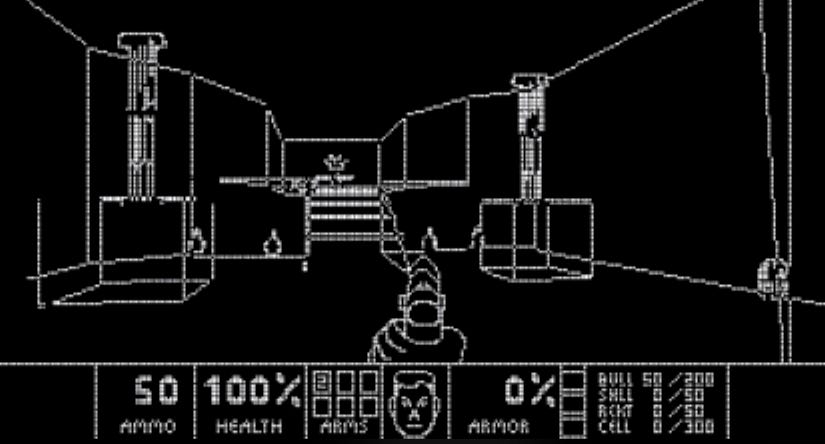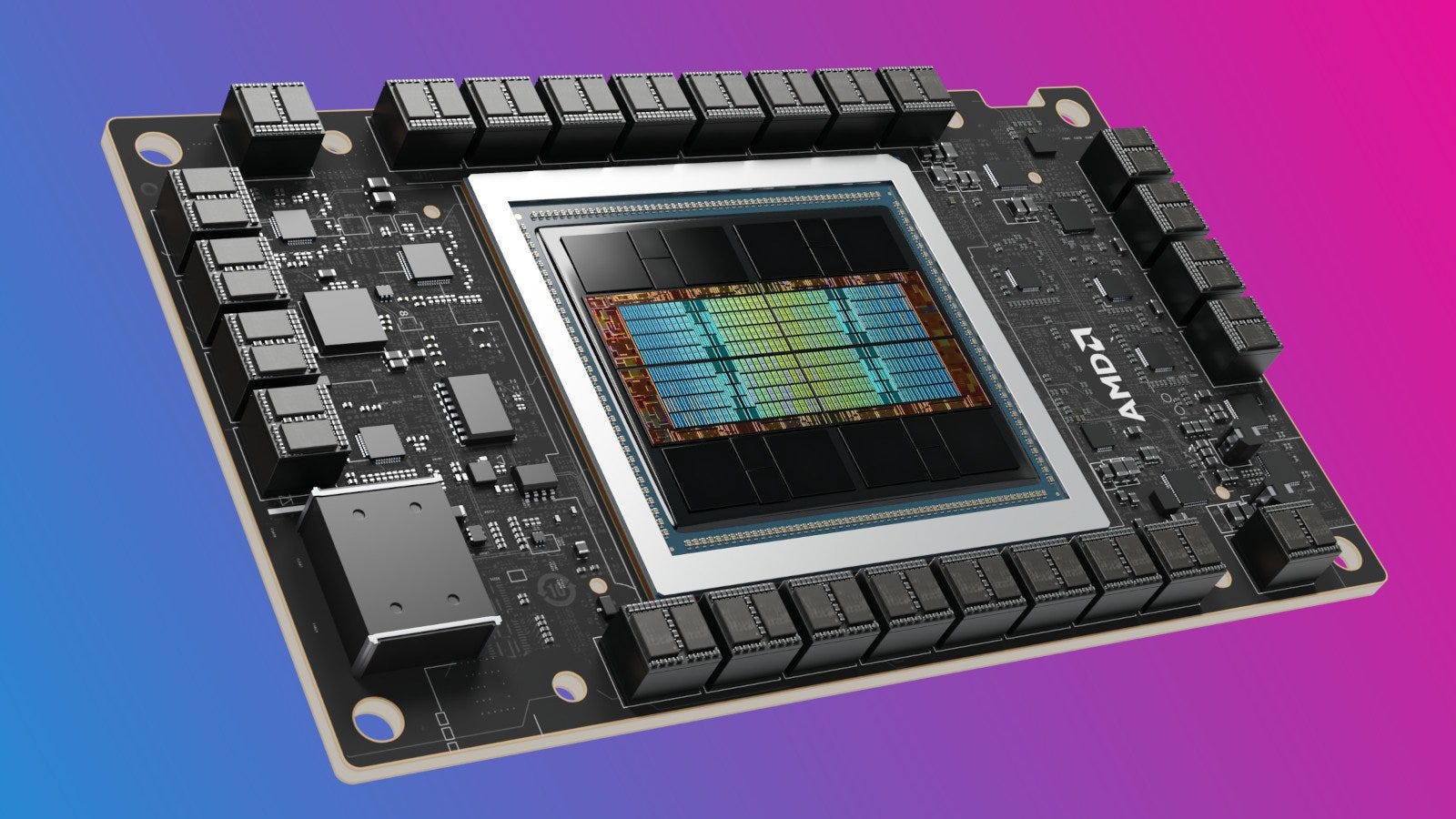Always Be Curious #231: AMD's new chip, China's overcapacity, and inside TSMC Arizona
This week in ABC: AMD launches a chip to rival NVIDIA's Blackwell, unfounded fears on China's mature overcapacity, and a look inside TSMC's Arizona hub
In a world increasingly shaped by artificial intelligence, it's easy to forget the groundbreaking work that made it all possible. The 2024 Nobel Prize in Physics celebrates two visionaries who laid the foundation for today's AI revolution: John Hopfield and Geoffrey Hinton. 🏅
There was a time when computers were just seen as simple calculators, incapable of anything like human cognition. 🧮 This was the perception that Hopfield and Hinton set out to change. In 1982, Hopfield, drawing inspiration from the behavior of magnetic materials, created a network that could store and recall information—much like human memory. His creation, now known as the Hopfield network, could reconstruct complete patterns from partial or distorted inputs – a feat that seemed almost magical at the time. Building on Hopfield's work, Hinton took the next giant leap. In 1985, he unveiled the Boltzmann machine, a network that could learn to recognize patterns on its own. Named after the 19th-century physicist Ludwig Boltzmann, this invention brought us closer to machines that could think and learn like humans. 💪
The journey from these early models to today's sophisticated AI has been nothing short of extraordinary. What began as networks with just 30 nodes has exploded into systems with over a trillion parameters. 📈 This growth has revolutionized fields far beyond computer science, from discovering new particles in physics to predicting protein structures in biology.
As humanity marvels at AI's ability to translate languages, recognize images, and even engage in conversation, we owe a debt of gratitude to Hopfield and Hinton. 🙏 Their work reminds us of the power of interdisciplinary thinking—how principles from physics can unlock new frontiers in information processing. The story of machine learning is far from over. As we grapple with ethical questions and explore new applications, we stand on the shoulders of these giants, peering into a future that is limited only by our imagination.
Have a good week, stay safe and sound,

👨💻The round-up in sci-tech💡
🏅 Nobel Physics Prize awarded for pioneering AI research by two scientists (The New York Times) 🎁
With work on machine learning that uses artificial neural networks, John J. Hopfield and Geoffrey E. Hinton “showed a completely new way for us to use computers,” the committee said.
🏅 Google DeepMind leaders share Nobel Prize in chemistry for protein prediction AI (MIT Technology Review)
Half the prize goes to Demis Hassabis and John M. Jumper from Google DeepMind for using AI to solve protein folding, and the other to David Baker for tools to help design new proteins.
🛰️ The ‘beautiful confusion’ of the first billion years comes into view (Quanta)
Astronomers are reveling in the James Webb Space Telescope’s discoveries about the formative epoch of cosmic history.
🤖🚕 Tesla's 'We, Robot' event: everything revealed in 8 minutes (CNET)
✍️ Announcing the 2024 NASW Science in Society Journalism Award winners (NASW)
Every year, the National Association of Science Writers awards the finest writing in science and technology. Scroll through the list and tickle your neurons!
🔫 DOOM received a quantum computer port (80.lv)
Marking yet another milestone for the epic game (and for quantum).
🤖🛒 The supermarket superstardom of Marty the Stop & Shop Robot (Boston Magazine)
Inside the accidental fame of Stop & Shop’s slow-rolling sensation.
“Marty pauses as if he’s contemplating me, his lidar cameras whirring, his eyes unblinking. Then he rolls on as if he has more important things to do.”
🔴 Curiosity Mars rover's wheels are more battered than ever — but they still work (Space)
After more than 12 years exploring Mars, NASA's Curiosity rover has tired feet — err, wheels.
🤓This week in chips⚠
🔥 AMD launches AI chip to rival Nvidia's Blackwell (CNBC)
Advanced generative AI such as OpenAI's ChatGPT requires massive data centers full of GPUs, which has created demand for more companies to provide AI chips.
🍿 AMD 'Advancing AI' event: everything revealed in nine minutes (CNET)
🎌 Japan's chip revival is on track. The real challenge begins now (Nikkei)
To maintain progress, Tokyo must solve financing issues and engineer crunch
🌏 Asia to remain center of chip industry despite West's push: ASML CEO (Nikkei)
Europe and U.S. must address 'costs and flexibility' to have global impact
🙌 TSMC and NVIDIA transform semiconductor manufacturing with accelerated computing (NVIDIA)
TSMC is moving to production with the NVIDIA cuLitho computational lithography platform to accelerate manufacturing of advanced semiconductor chips.
🇹🇼🇺🇸 Inside TSMC Arizona: a glimpse into our cutting-edge work environment (TSMC)
🔥 AMD to reportedly become TSMC's next major customer in Arizona — HPC AI chips could start US production in 2025 (Tom’s Hardware)
AMD will reportedly join Apple as another early TSMC Arizona fab client.
📄 China’s mature node overcapacity: unfounded fears (French Institute of International Relations)
“China is decoupling from, not flooding, the global mature-node semiconductor market. As China increasingly pursues industrial policies encouraging domestic chip production, its own growing chip demand will prevent a direct flood of cheap Chinese chips on foreign shores. However, as Beijing achieves its goal of decreasing the reliance of domestic downstream manufacturers on foreign chips, European and American mature-node semiconductor companies will feel the ripple effects of an increasingly “involuted” Chinese chip ecosystem.”
📈By the numbers📉
😳 Samsung announces earnings guidance for Q3 2024 (Samsung)
Samsung Electronics today announced its earnings guidance for the third quarter of 2024. Consolidated Sales: Approximately 79 trillion Korean won
🤐 Samsung apologises for weak Q3 2024 earnings amidst AI chip boom (Techmonitor)
“We have caused concerns about our fundamental technological competitiveness and the future of the company due to our performance falling short of the market’s expectations,” wrote Samsung vice-chairman Jun Young-hyun, despite the firm’s consolidated sales for Q3 of $58bn constituting a 6% rise on 2023’s figures. “We will definitely make the dire situation we are currently facing an opportunity for a leap forward. Our management will take the lead in overcoming the crisis. Above all, we will restore our fundamental technological competitiveness.”
❤️For the love of tech❤️
“What happens when you get a broken Macintosh SE/30 but it's not worth fixing? You go incredibly overboard instead.” 😎
Always Be Curious is the personal newsletter of Sander Hofman, Senior Creative Content Strategist at ASML. Opinions expressed in this curated newsletter are my own and do not necessarily reflect those of my employer.





